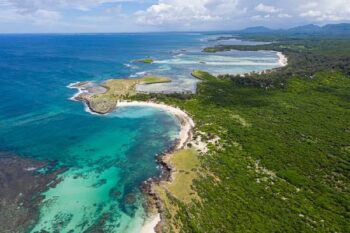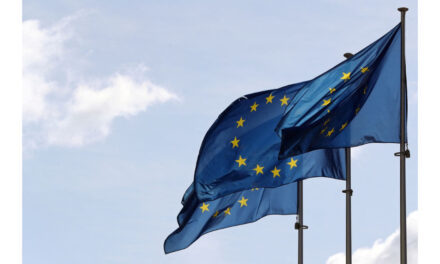 Industry leaders launched the Better Work Madagascar programme on Tuesday to transform the country’s apparel industry by improving working conditions and business productivity. The programme, a collaborative effort between International Labour Organization (ILO) and International Finance Corporation (IFC) with support from the European Union (EU) and partners from the government, employers’ and workers’ organizations and global brands, will contribute to the creation of decent employment and inclusive growth.
Industry leaders launched the Better Work Madagascar programme on Tuesday to transform the country’s apparel industry by improving working conditions and business productivity. The programme, a collaborative effort between International Labour Organization (ILO) and International Finance Corporation (IFC) with support from the European Union (EU) and partners from the government, employers’ and workers’ organizations and global brands, will contribute to the creation of decent employment and inclusive growth.
Garment production is the economy’s main driver of growth in exports and formal employment creation in Madagascar, contributing to a third of total goods exports and over 100,000 jobs, 60 percent of whom are women.
“It is through a compliant and competitive value chain that we can cement Madagascar’s position as an outsourcing hub, thereby contributing to the country’s sustainable growth,” said Cynthia Samuel-Olonjuwon, ILO Assistant Director-General and Regional Director for Africa. “This is a positive step towards creating a better future of work, in which all women and men in Madagascar have access to decent work.”
Madagascar has been severely affected by the impact of the COVID-19 pandemic. The economy has been shaken by the decrease in exports, loss of market share and loss of jobs. Thus, the timing for this intervention is crucial and offers an opportunity for development for the sector.
The planned intervention aims to boost the country’s compliance and competitiveness via a two-pronged approach:
- To provide services – such as training, advisory and assessment support – to garment factory managers and workers based on proven Better Work tools and methodology.
- To target industry stakeholders from the government, employers’ and workers’ organizations to strengthen their skill sets and respective roles in the country’s supply chain.
The Better Work approach is one built to enable national actors to carry on with an improved way of working, so that the positive changes instituted by the programme are sustainable.
“IFC is committed to support the development of a competitive apparel industry in Madagascar, especially through greater complexity in production and by improving sustainability, to help create and sustain quality jobs,” said Marcelle Ayo, IFC’s Country Manager for Madagascar, Comoros, Mauritius and Seychelles. “We greatly appreciate the unique collaboration and partnership to leverage the respective expertise of different stakeholders to make Better Work a success.”
In 2020, Better Work concluded a feasibility study in Madagascar to assess the garment industry’s needs and potential collaborations with the industry’s stakeholders. As a result of the findings, Better Work has announced an 18-month-long pilot intervention, directed by the programme’s previous experience in manufacturing countries and relying on the guidance of national and local industry actors. Better Work will also work very closely with other ILO textile-focused programmes to maximize resources and impact.
“Better Work encourages working better to improve International Labour Standards and competitiveness, while the apparel industry needs to combine speed, efficiency and quality. We anticipate that this will be the response that this new project should bring,” declared Béatrice Chan Ching Yiu, Vice-President of the Madagascar Export Processing Companies and Partners Association (GEFP) and President of the Social Commission of the Madagascar Companies Association (GEM).
For his part, Rémi Botoudi, General Coordinator of the Workers’ Conference of Madagascar (CTM), stated that, “Malagasy workers need to be protected to fully exercise their rights, especially in the textile sector, which is one of the most important job-creating sectors in Madagascar.”
The key focus areas of the Better Work Madagascar programme include:
Enforcement of labour standards and improvement of compliance, social dialogue and skills upgrading; Contributing to the development of policies and best practice that support recovery of the industry while aligning with preferential trade agreements criteria; Promoting gender equality through training and policies that lift women from disadvantaged circumstances that work in the industry; and Helping to facilitate relationships with international buyers to ensure consistent business interest in the apparel industry of the country.
Isabelle Delattre, Head of Unit, Southern Africa and Indian Ocean, DG International Partnerships (INTPA), European Commission, recalled that “a new European legislation will soon be proposed, (…) based on International Labour Standards along the whole value chain. It will have a direct impact on the enforcement of these standards in Madagascar.”
The programme’s inaugural event was a day of discussion and exploration by representatives of the different stakeholders to help boost the growth of Madagascar’s garment industry.
Gisèle Ranampy, Minister of Labour, Employment, Public Service and Social Laws, closed the event with a pledge of commitment to the programme: “We express here our determination to engage in this new partnership with Better Work, which gives us cause for hope in improving working conditions, increasing labour productivity and economic performance of enterprises.”













